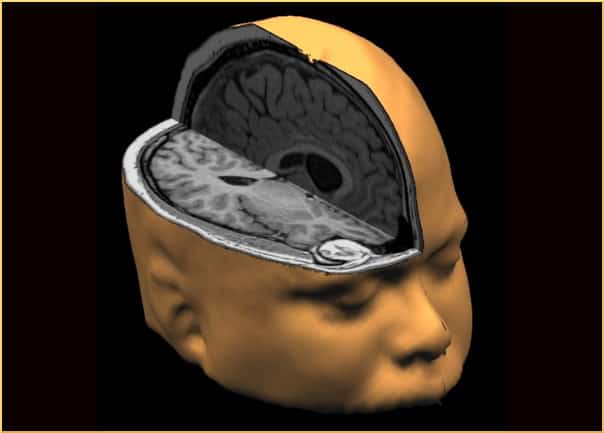
The subject of the most recent Childhood Obesity News post was ghrelin, a hormone connected with hunger and food cravings. There is also a hormone called leptin, connected with satiety, which originates in the stomach and in adipose tissue (fat). Despite their seemingly opposite natures, Dr. Billi Gordon draws some parallels between them.
He notes that both of these signaling hormones are able to cross the blood-brain barrier in order to bind to receptors that are mostly located in the hypothalamus. Also, both can enter the brain by way of the vagal nerve and a structure in the medulla oblongata known as the nucleus solitarius, which collects sensory information from many organs.
Additionally, both can either stimulate or suppress neurons in the hypothalamus, resulting in more or less appetite. Gordon describes the hypothalamus as the key brain structure in homeostatic maintenance, and points out that, unfortunately, it may be remodeled by a horrendous childhood, known in the profession as “early life trauma.”
In consequence:
[W]hen persistent stress, emotional and psychological factors are present, the hedonic factors will override the homeostatic control of food intake… When this occurs the brain utilizes dopamine derived from food’s hedonic value as a drug to intervene on the pathophysiology of stress. Hence, food goes from being a fuel to being an opiate to intervene on suffering…
Dr. Gordon includes a very elaborate explanation of the relationship of leptin to overeating, and the bottom line is this:
In a healthy individual, the body is able to communicate effectively with the brain via hormones such as leptin, ghrelin, insulin and other informational substances. In the obese individual’s unhealthy body, converging reasons breach communication between the brain and the body.
He lists five of those reasons, and the end result of it all is that “you overfeed your body because your brain believes you are starving.”
In a previous post we mentioned the work done by neuroscientists from the Children’s Hospital of Los Angeles among adults who do not have Prader-Willi syndrome, but who show the same behavior of unappeasable hunger, because “their ghrelin-producing mechanism was somehow damaged in infancy.” This discovery strikes another blow against the calories in — calories out paradigm, showing that:
Unstable levels of the hunger hormone ghrelin in infancy may pose lifelong risks for obesity, a new study finds. The results suggest a departure from the will power-focused ideas of the past, where obesity is a simple and direct result of eating right and exercising often.
Vancomycin is an antibiotic used to kill various bacteria, including the ferocious C. difficile. For just a hint of the complexity of these matters, consider this description of lab research in the field:
This novel paper demonstrated that alteration of the gut microbiome by vancomycin significantly reduced leptin levels and subsequently led to an increased myocardial ischemia tolerance. They confirmed that leptin was directly involved in myocardial ischemia tolerance by demonstrating that pretreatment with leptin abolished the cardioprotection seen with vancomycin treatment.
The short version is, a lot more goes on inside us than even the most advanced thinkers have previously guessed. Mainly, it begins to become apparent that no body system can be adequately described without taking into account the gut microbiome.
Your responses and feedback are welcome!
Source: “The Fatter the Body, the Hungrier the Brain,” PsychologyToday.com, 02/21/14
Source: “Ghrelin Hunger Hormone Poses Obesity Risk For Life When Imbalanced In Infants,”
MedicalDaily.com, 01/20/15
Source: “Intestinal Microbiota Determine Severity of Myocardial Infarction in Rats,” fasebj.org, 2012
Photo credit: Digital Shotgun via Visual Hunt/CC BY-ND

 FAQs and Media Requests:
FAQs and Media Requests: 











